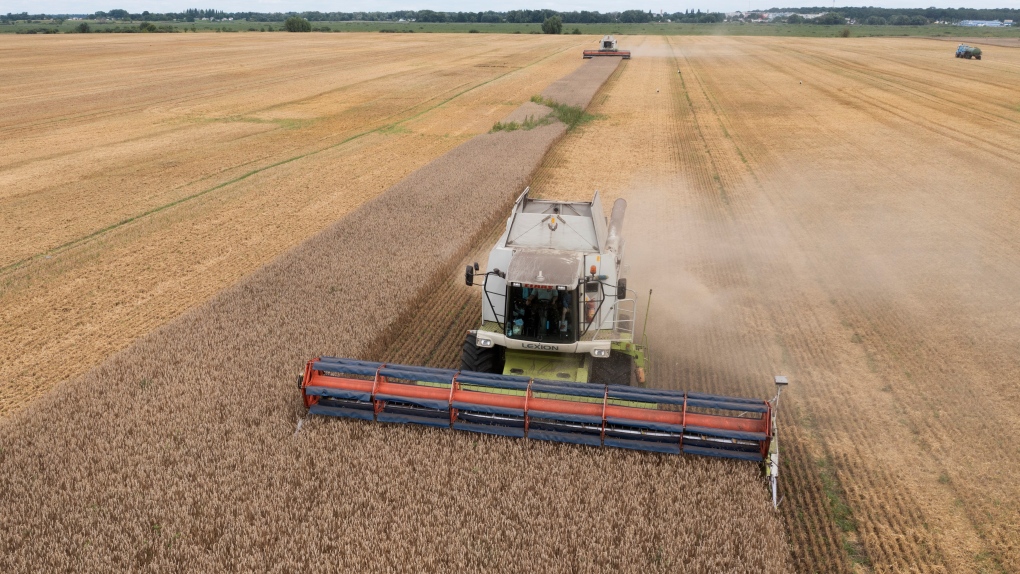
Poland to test quality of Ukraine grain amid farmer protests
CTV
Poland's new agriculture minister vowed Wednesday to introduce detailed quality controls on the massive inflow of grain from Ukraine transiting through the country, and to ensure its efficient transport abroad. The move follows protests by angry Polish farmers, who say they face bankruptcy because of a glut of cheap Ukrainian grain.
Poland's new agriculture minister vowed Wednesday to introduce detailed quality controls on the massive inflow of grain from Ukraine transiting through the country, and to ensure its efficient transport abroad. The move follows protests by angry Polish farmers, who say they face bankruptcy because of a glut of cheap Ukrainian grain.
Minister Robert Telus faced sharp criticism from lawmakers in parliament, who alleged that trading companies linked to the government were making huge profits from selling cheap, untested Ukrainian produce in Poland, instead of facilitating its transfer to grain-hungry Africa.
Telus replaced the previous agriculture minister, Henryk Kowalczyk, who resigned last week just hours before an official visit by Ukrainian President Volodymyr Zelenskyy. During the visit, the Polish and Ukrainian leaders said they had found a rapid resolution to the "grain problem" but provided no details.
Amid the Russian invasion that has blocked traditional export sea passages, the European Union lifted duties on Ukrainian grain to facilitate its transport to Africa and the Middle East. However, it has flooded markets in Poland, Romania and other EU countries that were only supposed to be transit routes.
Polish farmer groups staged protests Wednesday at border crossings with Ukraine, but police prevented them from blocking the rail tracks. Dozens of cargo wagons, each containing some 70 tons of grain, enter from Ukraine each day, further increasing farmers' anxiety for the future and for their crops this year.
Protesters said the grain transit should be prioritized in the same way as the heavily guarded transshipment of arms to Ukraine, to prevent the grain from flooding the Polish market.
Instead, they argued, government-linked companies were allowed to import it as cheap, low-quality grain, and then sell it to bread and pasta plants as high-quality Polish produce.
